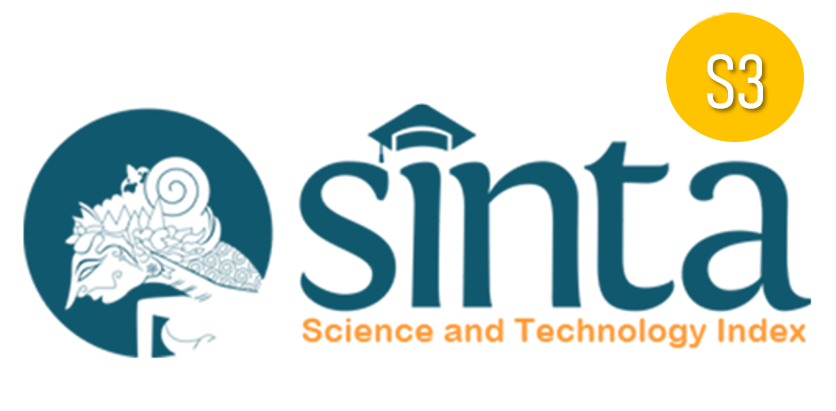Game Technologies and Their Impact on the Personal Development of Children
Abstract
This study explores the impact of game technologies on the personal development of children, particularly in early childhood education. Games are not only a form of entertainment but also serve as powerful tools for enhancing creativity, logical thinking, problem-solving, and social skills. Through gameplay, children learn to collaborate, communicate, and exercise leadership in group settings. The integration of educational, role-playing, and logical games into the learning process promotes emotional, cognitive, and behavioral growth. Game-based learning also supports the development of imagination, critical thinking, and self-regulation. This paper highlights how various types of games—such as digital games, pedagogical simulations, and role-playing activities—can be applied to educational environments to foster holistic development. Emphasis is placed on the role of teachers in guiding game-based learning and aligning it with pedagogical goals. Overall, the study advocates for the strategic use of game technologies as effective tools to support children’s comprehensive development.
Keywords
Full Text:
PDFReferences
Albion, L., Kaira, M.R., Tawami, T., Fairuz, D.A., and Maulana, H. (2021). Designing English education game application for early childhood. ASEAN Journal of Science and Engineering Education, 1(2), 117-124.
Ayustyaningtias, R., Alinurdin, E., and Wahyudin, A. (2025). Improving students' critical thinking through blended learning media learning game word wall. ASEAN Journal of Educational Research and Technology, 4(1), 51-58.
Cabrillos, L.E., Gapasin, J.D., Marfil, J.A., and Calixtro Jr.V.L. (2023). Examining the effects of online games on the academic performance of BPEd students of Sultan Kudarat State University, Philippines. Indonesian Journal of Educational Research and Technology, 3(1), 13-18.
Hafina, A. (2023). Post-traumatic counselling through group games. Indonesian Journal of Multidiciplinary Research, 3(2), 383-392.
Hanna, H., Abdul, S.L., Cruz, A.D.B.D., Manalo, Z.T., Papna, F.M.L., and Falle, J.A. (2021). Game-based activity method: A case of grade 5 students. Indonesian Journal of Teaching in Science, 1(1), 13-16.
Ibrahim, I.M., Suryadi, K., Darmawan, C., and Nurbayani, S. (2024). The use of the Natuna game about the natural wealth of the Natuna marine on national awareness of the post-millennial generation. ASEAN Journal of Science and Engineering, 4(2), 237-250.
Jurayevich, B.O. (2023). Ways to develop education for obtaining general physical qualities of young wrestlers through action games. Indonesian Journal of Multidiciplinary Research, 3(1), 153-158.
Lathifah, N.N., and Maryanti, R. (2021). Basic arithmetic learning through math online games for elementary school students during the pandemic. Indonesian Journal of Multidiciplinary Research, 1(2), 379-384.
Machmud, M.T., Utami, N.M., Pansri, O., and Rosidah, R. (2024). Enhancing philosophy comprehension through the what am I? Word guessing game. Indonesian Journal of Multidiciplinary Research, 4(2), 427-438.
Ramdhani, A.F., and Saputra, M.Y. (2023). Effect small side games (SSG) on playing skills in handball sports. ASEAN Journal of Physical Education and Sport Science, 2(1), 61-68.
Rusyani, E., Maryanti, R., Rahayu, S., Ragadhita, R., Al Husaeni, D.F., and Susetyo, B. (2022). Application of scrabble game in improving learning of simple sentence structure on the student with hearing impairment. ASEAN Journal of Science and Engineering Education, 2(1), 75-86.
Rusyani, E., Saepulloh, A., Maryanti, R., Ragadhita, R., and Al Husaeni, D.F. (2021). The effect of the team-games-tournament method on improving the learning ability of student with hearing impairment in multiplication concepts. Indonesian Journal of Multidiciplinary Research, 1(2), 219-228.
Sella, F., Sukmayadi, Y., and Fetrianggi, R. (2024). Designing a notation card game media to improve the ability to read rhythmic music of 7th grade junior high school. Indonesian Journal of Multidiciplinary Research, 4(1), 205-212.
Solihah, P.A., Kaniawati, I., Samsudin, A., and Riandi, R. (2024). Prototype of greenhouse effect for improving problem-solving skills in science, technology, engineering, and mathematics (STEM)-education for sustainable development (ESD): Literature review, bibliometric, and experiment. Indonesian Journal of Science and Technology, 9(1), 163-190.
Suherman, A., Komaro, M., and Ana, A. (2023). e-book multimedia animation implementation on concept mastery and problem-solving skills of crystal structure subjects in engineering materials course. Indonesian Journal of Science and Technology, 8(2), 259-280.
Yaseen, S.T. (2023). Rehabilitation program for surgical shoulder joint protrusion among team games players injured. ASEAN Journal of Physical Education and Sport Science, 2(2), 105-116.
DOI: https://doi.org/10.17509/ijert.v5i2.82751
Refbacks
- There are currently no refbacks.
Copyright (c) 2025 Universitas Pendidikan Indonesia (UPI)

This work is licensed under a Creative Commons Attribution-ShareAlike 4.0 International License.







.png)




